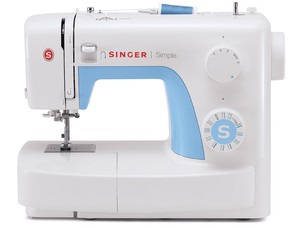Singer Featherweight 221
My Featherweight was a gift from my grandmother on my 11th birthday. I was thrilled & learned the basics by sewing custom marble bags (!) for my schoolyard friends, then began making doll clothes. My Featherweight went off to college with me, then later after I was married was used for altering hems, making curtains, pillow covers, & duvet covers.
Always, while adventuring in Mexico & Guatemala, my Featherweight went along, powered by a mini solar panel, small inverter, & plugged into the cigarette lighter of my Westfalia. In Guatemala I bought lengths of hand woven cloth & sewed them into wrap skirts with deep patch pockets & sold them to other traveling gringas. This allowed me to extend my travel time in Guatemala by a full year.
Once, in a discussion with women friends about what we would grab while running out of a house fire & I said, & meant it, I would grab my Featherweight. When I take to the road again, it goes with me. There is NO better made sewing machine than a Featherweight 221. It is bulletproof, can be easily adjusted by me when needed. Nothing goes wrong with a Featherweight. Housed in their own carry case--the size of a "train case"--they take up very little room & are worth their weight in gold. BTW, Featherweights are preferred by quilters hands down.
The ability to sew, create simple patterns, & make appropriate fabric choices is a valuable skill & a practical & pleasurable creative outlet on the road.
Charlotte








